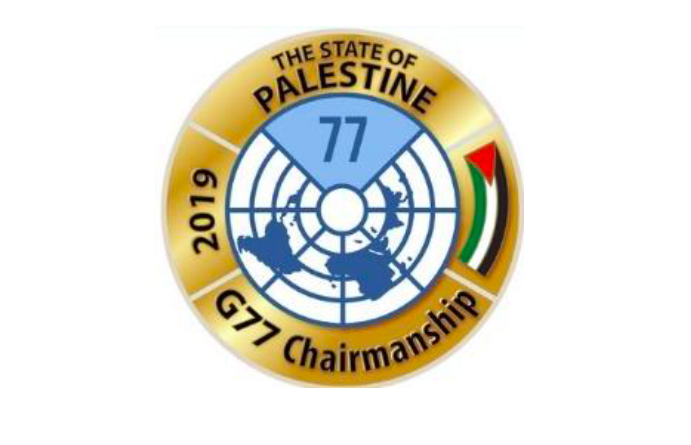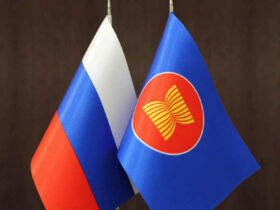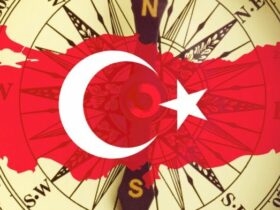Those whose eyes have been dazzled by the gloss of the US and Israel are dumbfounded every time the world of the oppressed seeks their rights. Moreover, since they cannot see the great change in the world, they constantly spread incurable pessimism. They cannot understand the force that has turned Israel’s “Iron Dome” into rags. However, we are witnessing together that the “Either Independence or Death” revolt of the indomitable Palestinians, under the name of the ‘Aqsa Flood’, is hastening a permanent solution.
Saudi Arabia, on which the US had pinned great hopes, has announced that it has ended its efforts to normalize relations with Israel. Israel is becoming more and more isolated. And the US is powerless to save it.
Why now?
The establishment of a Palestinian state with Jerusalem at its center, encompassing the 1967 borders, is now on the agenda. The resistance since 1947, in its 76th year, has reached the threshold of success. Why is it happening now?
Nagorno-Karabakh, occupied by Western-backed Armenia since 1987, was completely liberated by the Azerbaijani Armed Forces. Why in 2023 what could not be done for 35 years?
Why was the Varosha region, closed to settlement and habitation since 1974, liberated two years ago? Why did it take 40 years for the Turkish Republic of Cyprus to be recognized internationally?
Why was the bloody occupation of Afghanistan by the US and NATO overthrown only in 2021, after 20 years of struggle to the death? Moreover, how could those who were not considered as human beings because of the slippers on their feet and the turban on their heads achieve peace and unity in a country in ruins?
In Africa, in the last 18 months, one after another, Pro-Western governments in Mali, Niger, Burkina Faso, Chad have been overthrown with the unity of the nation and the army, and have received great support from the people. Where is the force that is blowing the wind of independence across the continent of Africa, which is forced to suffer the world?
In Central and South America, which the US calls “my backyard”, pro-US governments are now fewer than a handful. At the BRICS summit, Central and South America showed that its future is united with the peoples of Asia and Africa. Why is the struggle started by Simon Bolivar in 1810 building the bastions of victory two hundred years later?
Why was the Organization of Turkish States, an important power of the oppressed nations, able to embrace all its components and put its weight on world politics in 2021?
The oppressed nations have now the initiative
We can increase these questions. The answer is very clear. The world is no longer unipolar. America’s project of imposing order on the world under the name of globalization has collapsed. The world has become multipolar.
More importantly, the initiative is now in the hands of the oppressed, not the oppressors. This is how the people of Gaza took the initiative in Israel.
If 2023 is asked about its place in the history of humanity, it will be said to be the year when the oppressed nations stood up, united and put their weight in world politics.
Even US President Biden’s “promise of reform” at the IMF, the World Bank and the UN, which he used to stave off the rebellion of the countries of the South, is enough to show the US’s exhaustion and desperation.
There are many indications that the oppressed in Asia, Africa and Latin America are rising up to claim the rights of their states. The Shanghai Cooperation Organization’s inclusion of Iran and Saudi Arabia at the New Delhi Summit in July 2023, the extraordinary success of the BRICS South Africa Summit in August, the wind blowing in the UN General Assembly in September, or the participation of 110 countries in the 3rd Belt and Road Cooperation Forum in Beijing on October 17-18.
The historic G-77 summit that Türkiye did not notice
There is a very important meeting that should be added to this list. Which the Turkish public did not pay attention to: The G-77+ China Summit held in Havana, the capital of Cuba, on September 15-16.
The Summit, organized by the Group of 77 (G-77), which operates within the UN, together with China, witnessed a remarkable gathering of leaders of emerging economies. The G-77, the second-largest organization after the UN, represents 80 percent of the world’s population. The Havana Summit represents a crucial momentum in the rising struggle for economic justice and inclusion in the international order.
It was attended by delegates from more than 100 countries, including more than 30 heads of state and government.
The Summit’s host, Cuban President Miguel Diaz Canel, called for a just new world order. Diaz Canel’s statement is a striking summary of the situation in the world today: “After all this time in which the North has organized the world according to its own interests, it is now up to the South to change the rules of the game.”
The extraordinary power of the G-77 in its 60th year
Group of 77, which will celebrate its 60th anniversary next year, currently has more than 130 members. The presidency rotates among member countries in Asia, Africa and Latin America.
The G-77 is the largest multilateral cooperation and coordination organization among developing countries and its member countries make up more than two-thirds of the UN member states.
The G-77 was established on June 15, 1964 at the first session of the UN Conference on Trade and Development (UNCTAD) when 77 countries signed the “Joint Declaration of Seventy-Seven Countries”.
The first Ministerial meeting of the G-77 was held in Algiers in 1967 and the “Charter of Algiers” was adopted, which included radical measures.
G-77 members range from Latin America and the Caribbean to Africa and Asia-Pacific, from the Least Developed Countries to the Small Island Developing States most affected by climate change. Each year in January, a different country takes over the chairmanship. In 2022, Pakistan led the Group and in 2023 Cuba assumed the Presidency.
Although China is not a member, it is the most important component of the Group under the umbrella of “G-77+China”.
UN Secretary-General: It is up to the countries of the south to build a just world order
The Summit stood out for the solutions it proposed to the challenges faced by the countries of the South, forming the backbone of a just international order based on the power of oppressed nations.
UN Secretary-General António Guterres was quick to take their cue and, in his opening session speech, delivered a stark reminder that the world has failed developing countries. The UN Secretary-General pointed out that it is the countries of the South that suffer the most from climate change and are the most burdened by external debt. Guterres called for “promoting a system based on equality, a system that reverses centuries of injustice and neglect, and a system that serves all humanity, not the privileged.”
Guterres said the G-77+ China Summit is an opportunity to “reshape the international system and international institutions to reflect the realities of today, rather than the realities that existed after the Second World War, in order to create a more just future for developing countries.”
The resolution of G-77+ China constitutes today’s program
“Throughout these days, Cuba has been the capital of the Global South, the place of eternal hope, the home of those who have contributed the most but have received the least share of global wealth,” said Cuban Prime Minister Manuel Marrero.
The Final Declaration was approved on the last day of the Summit. The highlight of the Declaration was the call for a comprehensive reform of the international financial architecture and the urgent need to change the international financial structure.
The summary of the Declaration is as follows:
– Promoting Multilateralism
– Enhancing South-South Cooperation
– Defending the Right to Sustainable Development
– Poverty Eradication
– Making Polluters Foot the Bill for Climate Change
– Protection of the Inalienable Rights of Sovereignty and Independence and Non-Interference in Internal Affairs
– Revitalizing the Global System of Trade Preferences (GSTP)
– Ending Unilateral Sanctions
Life teaches everyone Lenin’s theory of imperialism
Those who comprehend the theory of imperialism of the great revolutionary Lenin are not surprised by the developments in the world. “The imperialist chain is broken at its weakest link” has been the guide of the revolutions of the last two centuries. Lenin’s “Forward Asia, Backward Europe” at the beginning of the 20th century has become today’s reality.
There is no difference between Bülent Arınç’s disdain for the Palestinian people by wagging his finger at them and saying “what power do you have?” and Sultan Vahdettin’s complaint against Mustafa Kemal to British Occupation Commander Rumbold, calling him “a bunch of bandits”.
Havana is 11,142 kilometers from Jerusalem, but the international resistance of the oppressed, which manifests itself in Cuba, gives the sling-wielding generals of Palestine the power to take Israel’s generals in baggy pants captive.
As the Belt and Road Initiative, the most comprehensive and most widely participatory international cooperation formation in human history, grows and spreads, it is giving oppressed nations determination and the power to create their own future.
Cover photo: Palestine assumed the presidency of the G-77 in 2019 with this graphic.
















Leave a Reply